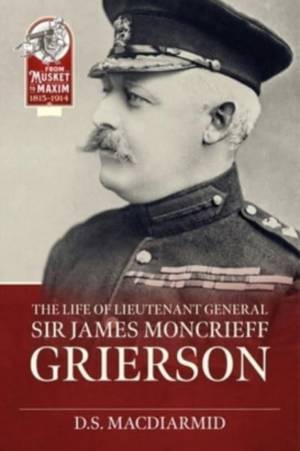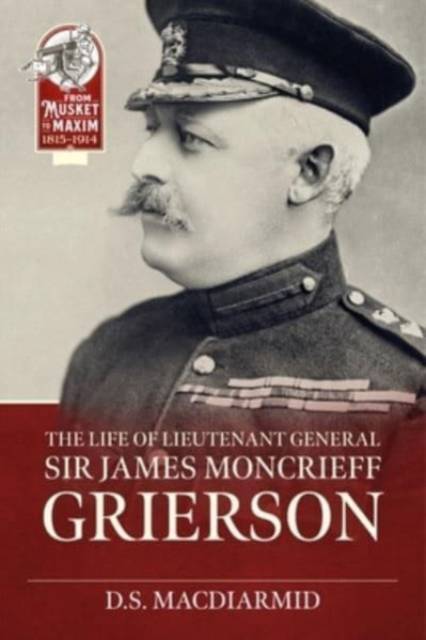
En raison d'une grêve chez bpost, votre commande pourrait être retardée. Vous avez besoin d’un livre rapidement ? Nos magasins vous accueillent à bras ouverts !
- Retrait gratuit dans votre magasin Club
- 7.000.000 titres dans notre catalogue
- Payer en toute sécurité
- Toujours un magasin près de chez vous
En raison de la grêve chez bpost, votre commande pourrait être retardée. Vous avez besoin d’un livre rapidement ? Nos magasins vous accueillent à bras ouverts !
- Retrait gratuit dans votre magasin Club
- 7.000.0000 titres dans notre catalogue
- Payer en toute sécurité
- Toujours un magasin près de chez vous
Description
James Moncrieff Grierson was born in Glasgow in 1859. Having been educated in Scotland and Germany, he entered the Royal Military Academy passing out fourth and joining the Royal Artillery in 1878. He saw service in India, Egypt and the Sudan, and started to build a reputation both as a competent staff officer but also as a knowledgeable individual on foreign armies, and attended many European army maneuvers as an official representative. Active service overseas was combined with staff work at home, particularly in the Intelligence Department where he headed up the Section concerning Russia. Grierson was also an expert of the German military, where he had many friends and was warmly welcomed. There is therefore a certain irony that it was Grierson who would later lay the foundations of military cooperation between Britain and France in the early years of the 20th century. Prior to the outbreak of war in 1914 it had been presumed that Grierson would be appointed Chief of Staff, but when war came Grierson was given command of the 2nd Army Corps of the B.E.F. Sadly on the 17th August 1914, whilst on a train near Amiens, he suffered an aneurism of the heart and died. His untimely death remains one of the great 'what if' questions of World War One.
Grierson was a first rate staff officer and had a considerable active service record to support it. An expert in foreign languages and an astute writer, he made a considerable contribution to the British Army during the Late Victorian and Edwardian period.
D S MacDiarmid's biography of Grierson will always remain the definitive account of his life, with extensive quotations from diaries and private papers. Unfortunately, on the death of MacDiarmid Grierson's papers are said to have been destroyed. This therefore adds importance to this work and why it proves a useful tool to historians of the period.
Grierson was a first rate staff officer and had a considerable active service record to support it. An expert in foreign languages and an astute writer, he made a considerable contribution to the British Army during the Late Victorian and Edwardian period.
D S MacDiarmid's biography of Grierson will always remain the definitive account of his life, with extensive quotations from diaries and private papers. Unfortunately, on the death of MacDiarmid Grierson's papers are said to have been destroyed. This therefore adds importance to this work and why it proves a useful tool to historians of the period.
Spécifications
Parties prenantes
- Auteur(s) :
- Editeur:
Contenu
- Nombre de pages :
- 200
- Langue:
- Anglais
- Collection :
Caractéristiques
- EAN:
- 9781804513361
- Date de parution :
- 31-12-24
- Format:
- Livre broché
- Format numérique:
- Trade paperback (VS)
- Dimensions :
- 155 mm x 234 mm

Les avis
Nous publions uniquement les avis qui respectent les conditions requises. Consultez nos conditions pour les avis.






